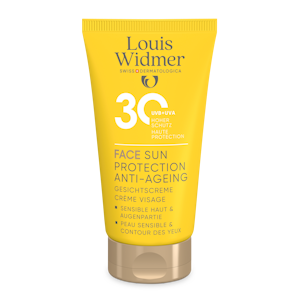There’s more to this ingredient than you may realize. From ingredients to SPF ratings and proper application, getting started with sunscreen can be a little confusing. That’s why we’ve put together this basic guide to sunscreen so that you can face warmer, sunnier days head-on.
Sunscreen glossary
First, let’s start with some basic terms. There’s a bunch of jargon that gets thrown around in conversations involving SPF, so it’s best to understand what they mean first!
Broad-spectrum. This refers to both types of ultraviolet rays emitted by the sun which can cause damage to the skin (UVA and UVB). It’s best to get sunscreen with broad-spectrum protection.
Chemical. Chemical sunscreens protect your skin by absorbing UV rays with chemical ingredients, such as octocrylene or avobenzone.
Mineral. Mineral sunscreens, or physical sunscreens, work by reflecting away UV rays with minerals such as titanium dioxide and zinc oxide. In other words, they form a physical barrier between UV rays and the skin.
SPF. SPF stands for sun protection factor. The number next to it measures how much solar energy is required to cause a sunburn on protected skin. The higher the SPF value, the more sunburn protection you get. The minimum recommended value for daily application is SPF 30.
Water-resistant. This refers to sunscreens that stay on the skin even after you get wet to ensure you are protected even after going swimming or sweating.
Zinc oxide. This active ingredient is found in mineral sunscreens, acting as an effective physical blocker that reflects UV rays and offers great protection.
How to use sunscreen properly
There are several things to remember when applying and reapplying your sunscreen.
First, shake the container well to ensure clumped-up particles break apart for easy application.
Applying enough SPF is usually the part most people get wrong. To cover your entire body, use 30 grams, which is about a handful of product. When applying it to your face, you can use the two-finger rule. This means that two strips of sunscreen should be squeezed along your index and middle fingers and then applied to your face.
It is also very important to use sunscreen on all the parts of your skin that are exposed to the sun. Don’t forget your ears, neck, and hands.
Be sure to apply thickly and thoroughly, but also be careful when applying this product around your eyes as it can cause stinging and pain.
Sunscreen FAQs
What is the difference between UVA and UVB?
The UV rays that cause skin damage are emitted in different wavelengths. UVA rays can cause collagen breakdown and premature aging while UVB rays cause burns and can lead to skin cancer. It’s worth noting that enough exposure to UVA rays can also cause skin cancer eventually. It is best to use a broad-spectrum sunscreen daily for protection.
Do I need to wear sunscreen even on cloudy days?
Yes, sunscreen should be worn on cloudy days. If there is enough light to see your hand in front of you, then it’s safe to assume that there’s enough UV light to cause skin damage. It’s best to be safe and apply sunscreen daily, even if it’s rainy or overcast.
Do I need to wear sunscreen inside?
It is not necessary to wear sunscreen inside unless you are constantly sitting next to a window. UVA rays can penetrate window glass, so it’s best to apply your SPF to be safe.
Do I need to reapply sunscreen if I have makeup on?
As a rule of thumb, sunscreen should be reapplied every two to three hours during active outdoor activities with constant exposure to the sun. If you’re simply going about your day at work, then there is no need to frequently reapply sunscreen over your makeup.
What To Look for When You Buy Sunscreen
Choosing which sunscreen to buy can be difficult with the number of different products out there. It is important to look for a product with broad-spectrum protection. The sunscreen you choose should also have the right formulation for a smooth, non-greasy application that won’t slip and slide throughout the day.
Louis Widmer’s Sun Protection Face 50+ provides high-level protection with a quick-absorbing formula that won’t leave you feeling oily. It also has an anti-aging effect that is perfectly suitable for sensitive skin. Ensure you are always protected while receiving the best skincare with our sunscreen.


